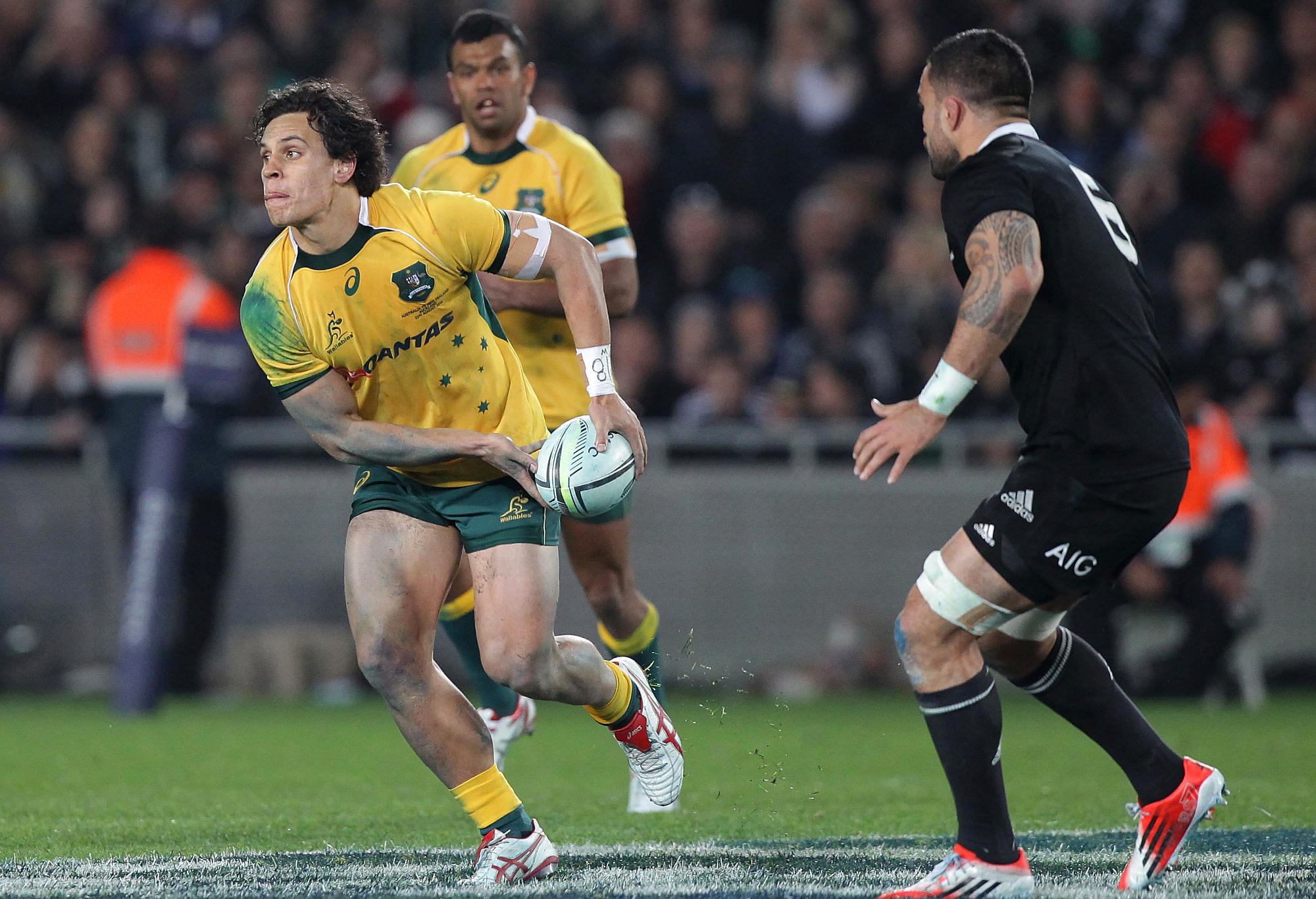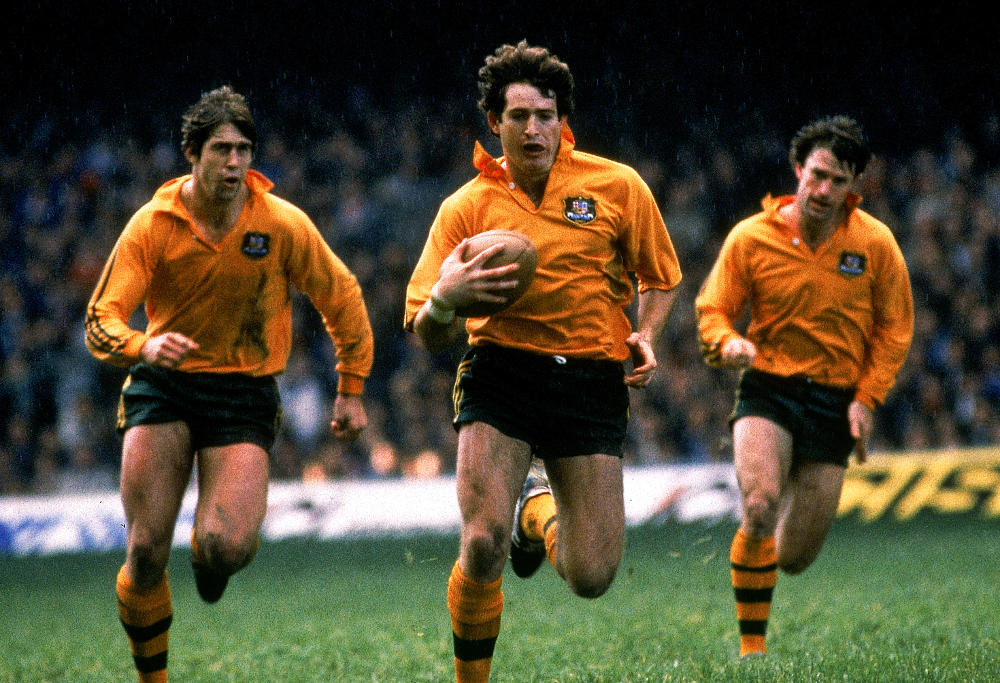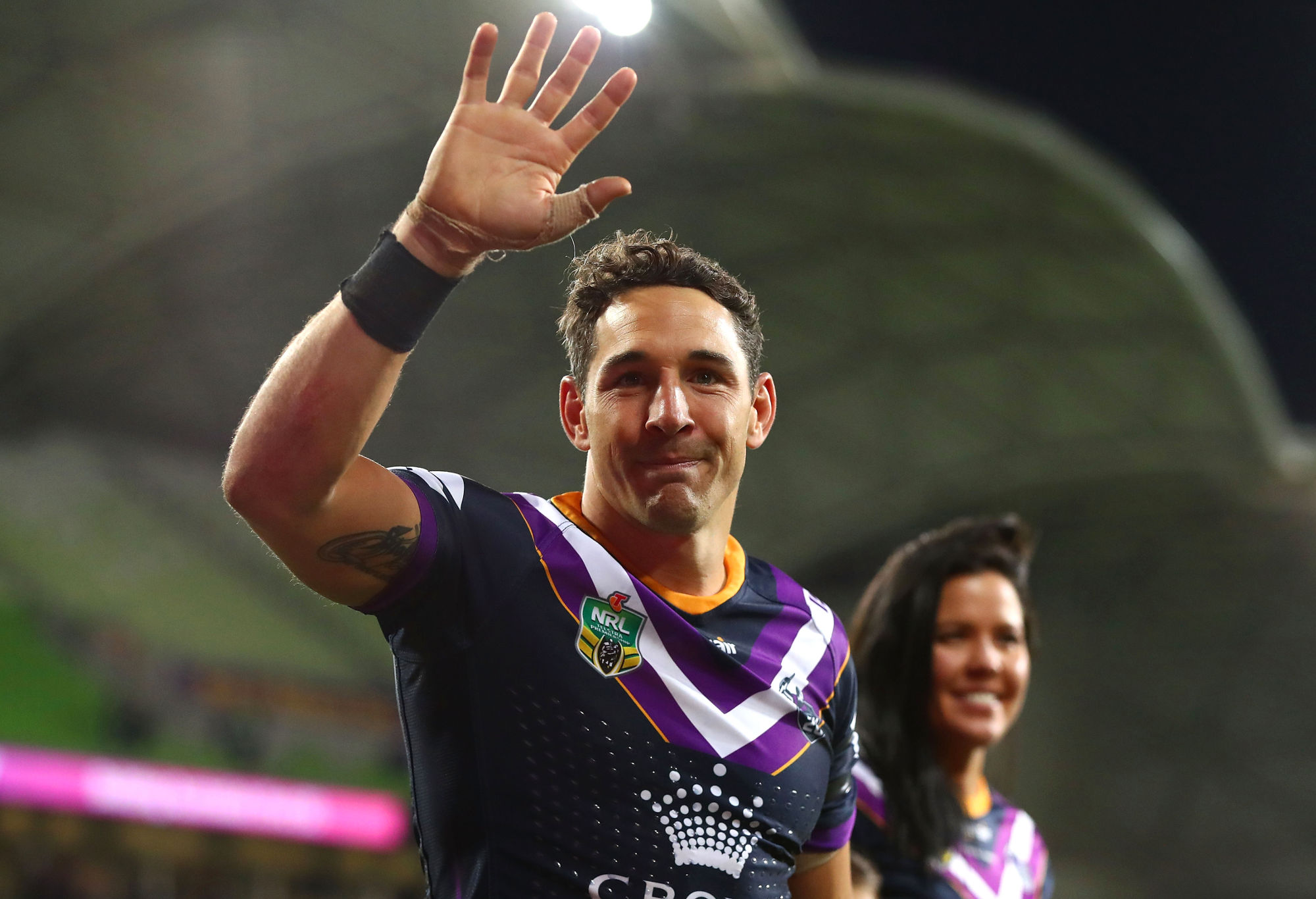There is no silver bullet to fix Australian rugby. For those of us who have grown up playing and watching rugby in this country we can all agree that the glory days are well behind us.
In the late 90s and early 00s showing up to a pub full of Wallabies supporters to watch the match, struggling to find a seat, the sound of Gordon Bray deafening from bar stool to cubicle was just another Saturday night.
Now, if you’re daft enough, you show up to a full pub of people who have no idea the match is even on! The bar staff seem completely miffed by the question as to “what screen will the Wallabies match will be on?”
“The Wallabies?”
Some staff member will then realise it is ‘on’, in the corner, on ‘mute’, in the smoking section, of the gaming room and the only people looking at the screen all appear to be cheering for whoever the Wallabies are playing against.
In political terms, ‘the pub test’ shows Australian rugby is currently in a death spiral. 2001 to now seem like two different universes as far as mainstream support and awareness, and in the age of social media, for rugby to be so invisible in the football landscape is an indictment on Rugby Australia and the state unions.
Did rugby in Australia lose a war? I think, sadly, it did. But now perhaps, an insurgency needs to be made to regain some of the ground lost over the past 20 years.

Matt Toomua (AAP Image/NZN/SNPA, David Rowland)
Australia is a crowded market for football with four codes in the winter weekend market. The one with no international appeal is the clear winner in terms of market share of revenue, participation and die-hard fans.
Although, rugby fans may be commended if they chose to watch an entire Super Rugby season, Test season and the NRC, which in spite of being very entertaining, had the state of NSW largely ignore it and was won by Fiji!
Cries for Australian viewers to be ‘taken for a HIA’ can’t be far off as only someone with either a head injury or some sort of sadistic death wish would happily put themselves through something as painful as watching your team show up and get beaten down week in, week out. And yet, here we are.
But, with the problems Australian rugby face ostensibly simple – not enough broad support, revenue and participation, the solutions appear less so.
The long-term strategic policy targets for Rugby Australia are probably best left to a journo like Geoff Parkes to flesh out (as he has in his book); the benefits of Ireland and New Zealand’s switch to central contracting or European clubs professionalism in training, club culture and recruitment.
Should Rugby Australia and the union states be looking into these ideas and drafting a plan to adopt or counter them? Well as an Australian rugby supporter, you’d hope they already are!
So with long-term goals a discussion for another day I want to turn my focus to the short-term strategies. As I believe, if rugby wants to be successful, it will require a different set of short-term strategies and methods than it will require in achieving the long term growth and prosperity we all want to see in Australian rugby.
Achieving the former with no goal to the latter seems pointless and reminiscent of Australian rugby of the late 90s, but achieving the latter appears completely dependent on the success of the former. As Australian rugby will starve to death long before any long-term strategy is realised, unless some significant upswing in the short-term results are driven by a sugar hit of success and silverware.

Glory days (Photo by Getty Images)
So what short-term strategies have been offered up? That Australia leave Super Rugby, Rugby Australia stop paying massive pay cheques to current Wallabies and throw it all at grassroots, scrap the NRC and focus on Shute Shield or vice versa have all been bandied around lately. But would any of these ideas work?
Or would a complete shrinking from the professional market place of global rugby leave Australia in a similar circumstance to our Pacific neighbours of Tonga, Fiji and Samoa? In my view, Australia and New Zealand are pinned to Super Rugby, for better or for worse, and can only hope it grows, not shrinks, to keep pace with the ever more lucrative rugby market place in Europe and America. This growth should run parallel with our own NRL and AFL who will continue to dominate market share of revenue and participation.
This appears to be a problem of not enough money and influence to do what we think we should, and so we do what we must.
I believe our short-term success hinges on the true spirit of Australian rugby that we all remember from our glory days: innovation and an ability to play what is in front of us.
This is what is required if we intend to ever regain the Bledisloe or Web Ellis Trophy in the coming years.
In nature, complex relationships, both competitive and cooperative, are formed between different organisms. These symbioses can be mutually beneficial or parasitic in nature, a certain flux with buffers is achieved so no organism’s population is truly annihilated by another just balanced in the food web.
Perhaps it is time for Rugby Australia to accept its place, for now at least, within the football market place, on the sporting food chain so to speak.
From there they can innovate and adopt a short-term plan of ‘parasitically leeching’ the glut of resources, staff and potential athletes in the junior ranks of the apex predators of the AFL and NRL.
We must view our competitive football market as an advantage over other rugby union nations and thrive on its varied skill requirements and conditioning techniques.
We must find ways to function in symbiosis with the AFL and the NRL both competitively and cooperatively.
I am not suggesting simply a poaching expedition of potential Dally M or Brownlow medallists as we have done in the past, professional athletes in their prime are expensive and often never worth more than their marketing value and profile.
But a concerted campaign to highlight the lucrative career of a Wallaby jersey in Australia and overseas can bring if an AFL or NRL call up is looking just out of reach for those juniors wishing to be a professional athlete.
As well as posting scouts and pathways to attract the youth back more needs to be done to attract the retired.
No sooner had Billy Slater hung up his boots last month then the news dropped of his dual role of ‘leadership development’ for both the Storm and St Kilda in the AFL.
How many young fullbacks in the NRC, Super Rugby or Under 20s would benefit from some of what Billy has to impart?
How many young Aussie flyhalves or halfbacks could benefit from a Cameron Smith, Johnathan Thurston or Cooper Cronk ‘leadership development role’ at their NRC or Super Rugby club.

Billy Slater: cross code champion. (Photo by Kelly Defina/Getty Images)
Even as a part time or contract as is the case with Billy Slater, their influence and knowledge of how to run a game and win is unparalleled in the Australian sporting marketplace.
As a small fish in a big sporting market we need to be incisive and scavenge the glut of talent and skills both these codes provide and use these to our advantage. As the empire building of AFL and NRL increase so does their inability to protect their expansive borders from insurgents.
The good news is, the Reds appear to be the litmus test, this year, for this idea. With Brad Thorn and his new recruit Peter Ryan, both ex Broncos, taking the reins as head and defensive coaches respectively.
The experiment should continue further with Rugby Australia ready to pounce on potential skills coaches, mentors, even using the NRC as a trialling ground for this discarded cross code talent. Strategic use of funds is key, not to blow our budget on a whale but fish for a catch we can conceivably haul on board.
A coach like Geoff Toovey as opposed to a Wayne Bennett, a Cooper Cronk in a part time skills coaching and mentoring role as opposed to attempting to harpoon Angus Crichton to slot into the Wallabies first fifteen.
The cross pollination of coaching and players of different codes introduced into the wild of our rugby landscape is the innovative stop gap measure we need while we get our house in order for long-term growth. And at this stage, what have we got to lose?































































































